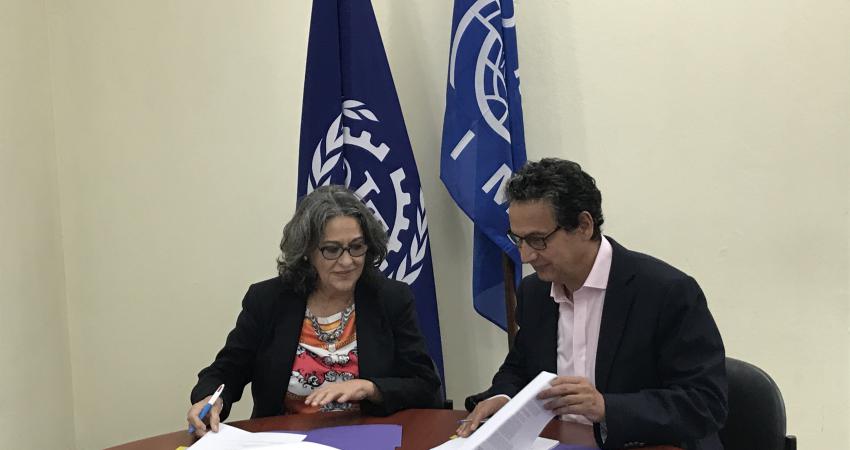Labor migration management efforts in the region redoubled with new IOM-ILO agreement

On December 11, 2019 Marcelo Pisani, the director of IOM for North America, Central America, and the Caribbean, and Carmen Muñoz, the director of ILO Office for Central America, Haiti, Panama and the Dominican Republic, signed a collaboration agreement between their two United Nations agencies in order to continue with a wide range of joint actions on labor migration.
Labor migration is a growing trend globally. There are approximately 272 million migrants worldwide, and according to an ILO estimate, there were 164 million migrant workers as of 2017. Of these, 68.1 million were women, or approximately 41.6% of the global total. Men accounted for 95.7 million, or 58.4%. Good labor migration management provides many benefits for migrants, communities, employers, governments, and other parties in countries of origin and destination. Achieving this requires comprehensive regional and inter-sectorial work.
In this context, the collaboration agreement between IOM and ILO aims to promote bilateral and multilateral coordination and the participation of key national and regional actors in order to respond more effectively to the challenges of labor migration and maximize its benefits for migrants and society in the countries of origin, transit, and destination.
“For IOM, these types of agreements are vitally important for creating joint work spaces that can promote concrete actions to improve labor migration management and guarantee the human rights of migrant workers,” stated Marcelo Pisani of IOM.
The agreement includes actions related to labor migration strategies, policies, and legislation, promoting regular migration channels, temporary migration programs, data collection, research, training, and prevention and eradication of child labor.
Joint efforts between IOM and ILO aim to build the capacities of governments as well as of employer, worker, and civil society organizations to reduce the risks of irregular migration and promote the positive impact of labor migration.
This agreement was made within the framework of the Regional Migration Program: Mesoamerica-The Caribbean, financed by the Bureau of Population, Refugees, and Migration of the Department of State of the United States of America.